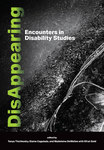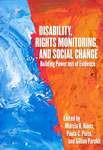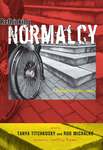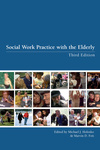We don’t actively support Internet Explorer
It appears that you are using Internet Explorer, which has been discontinued by Microsoft. Support has ended for versions older than 11, and as a result you may face security issues and other problems when using it.
We recommend upgrading to a newer browser such as Firefox, Google Chrome, or Edge for a much better experience across the web.
While this site may work with Explorer, we are not testing and verifying it, so you may run into some trouble or strange looking things.
Troubling Care
Critical Perspectives on Research and Practices
Edited by Pat Armstrong, Susan Braedley
Overview
How can we plan, organize, distribute, and offer care in ways that treat both those who need it and those who provide it with dignity and respect?Using the example of residential services, Troubling Care: Critical Perspectives on Research and Practices investigates the fractures in our care systems and challenges how caring work is understood in social policy, in academic theory, and among health care providers. In this era defined by government cutbacks and a narrowing sense of collective responsibility, long-term residential care for the elderly and disabled is being undervalued and undermined.A result of a seven-year interdisciplinary research project-in-progress, this book draws together the work of fourteen leading health researchers, including sociologists, medical practitioners, social workers, policy researchers, cultural theorists, and historians. Using a feminist political economy lens, these scholars explore and challenge the theories, work organization, practices, and state-society relations that have come to shape long-term care.Troubling Care offers critical perspectives on the often disquieting arena of care provision and proposes alternatives for thinking about and meeting the needs of some of our most vulnerable citizens in ways that go beyond residential care. This book seeks to bridge not only the gaps between disciplines, but also those between theory and practice.Features:
- takes an interdisciplinary approach, making this work appropriate for courses in a variety of disciplines including sociology, medicine, social work, health policy, cultural studies, and political economy
- includes the work of fourteen leading health researchers, including sociologists, medical practitioners, social workers, policy researchers, cultural theorists, and historians
- bridges the gap between theory and practice by incorporating both theoretical research and specific case examples
Table of Contents
AcknowledgementsIntroductionPART ONE: CARING THEORIESChapter One: The Implications of Conceptualizing CareChapter Two: Imagining an Ethos of Care within Policies, Practices, and PhilosophyChapter Three: Care, Culture, and Creativity: A Disability Perspective on Long-Term Residential CareChapter Four: A Gender Politics of Long-Term Residential Care: Towards an AnalysisPART TWO: CARING WORKChapter Five: Counting Carers in Long-Term Residential Care in CanadaChapter Six: Work Organization, Care, and Occupational Health and SafetyChapter Seven: Skills for CarePART THREE: CARING PRACTICESChapter Eight: Living Better through Chemistry: Dementia, Long Term Care, and Antipsychotic Medication UseChapter Nine: New Technologies and Concepts of CareChapter Ten: Balancing the Tensions in Resident-Centred CarePART FOUR: CARING STATESChapter Eleven: Historical Perspectives on Care the Welfare State: The Rise, Retreat, Return, and Reframing of a Key ConceptChapter Twelve: Aging in Welfare States in Austere Times: Long-Term Care Reform in Japan and GermanyChapter Thirteen: Neoliberalism and Official Health Statistics: Towards a Research AgendaReferencesContributorsIndex









